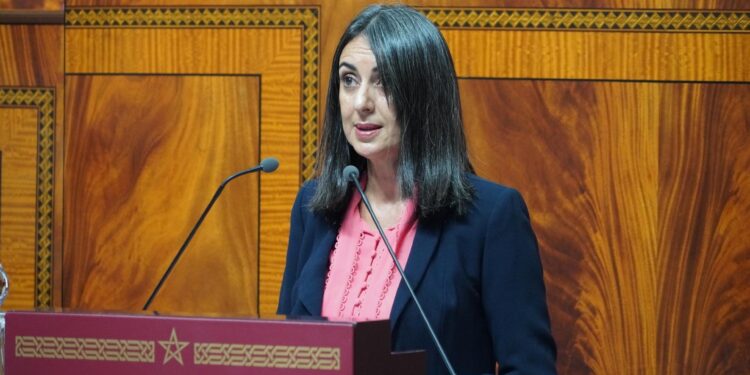Morocco plans to sell bonds on the international market for the first time since 2023 as it is ready for costly reforms and spending billions of dollars before hosting the 2030 FIFA World Cup, according to Bloomberg.
The Minister of Finance and Economy Nadia Fattah Al -Alawi said – in an interview with a conference in Al -Ula, Saudi Arabia – that the issue will be likely to be in the euro, which will make it the first government bond to the European coin shared since 2020, after a dollar release two years ago.
Bond
The return on the leaf of the Moroccan euro due in March 2026 decreased by a percentage since the beginning of the year and reached 3.03% on Wednesday.
“Today we need the euro more than the dollar,” Al -Alawi said, adding that Morocco “can be ready at any time” to sell bonds, but it is expected that the fluctuations of the market that occurred in January will be calmed down last January.
The European Union is the main commercial partner of Morocco, and companies in the bloc look forward to helping to finance infrastructure projects in the North Africa country, which hosts the World Cup alongside Spain and Portugal.
According to Bloomberg accounts, government total spending in Morocco until 2035, by adding the cost of an earthquake in 2023, will reach at least $ 35 billion
These projects include the expansion of railways in Morocco and the country’s national carrier, while the country builds two new port, dozens of water desalination plants, green hydrogen and renewable energy projects in the stage of implementation.
The country needs to raise the equivalent of at least two billion dollars for the planned pension reforms this year.
Ceiling
Legislators set a roof of $ 6 billion for new foreign debts in the 2025 budget bill, and the sale of bonds is expected to collect a third of this total, while most of the remaining amount will be covered through dual partners and founders.
According to the Bloomberg accounts based on government data, the total spending until 2035, by adding the cost of the earthquake in 2023, will reach at least $ 35 billion.
The chief credit research analyst in Red Intelligence, Mark Bouhlond, expected that Morocco would issue bonds once he obtained a flexible credit line from the International Monetary Fund.
“This reduces returns and provides protection against potential external shocks,” Bouhlond said.



